Millennials are skipping these old-school household skills, and they don’t feel bad about it.

Boomers take pride in their self-sufficiency—fixing appliances, balancing checkbooks, and sewing buttons back onto shirts. But for Millennials, the rules have changed. Many of the household skills Boomers mastered are either obsolete, unnecessary, or just not worth the effort. Technology, convenience, and shifting lifestyles have made some of these tasks irrelevant, while others have simply lost their appeal.
This isn’t about laziness; it’s about efficiency and priorities. Millennials value their time differently, and if an app, service, or modern tool can handle something faster, they’ll take that route. Some Boomers see it as a loss of practical knowledge, while Millennials view it as adapting to a world that operates differently. Here are 13 household skills Millennials are happily skipping—and why they’re not looking back.
1. Ironing clothes feels pointless when wrinkle-free fabrics exist.
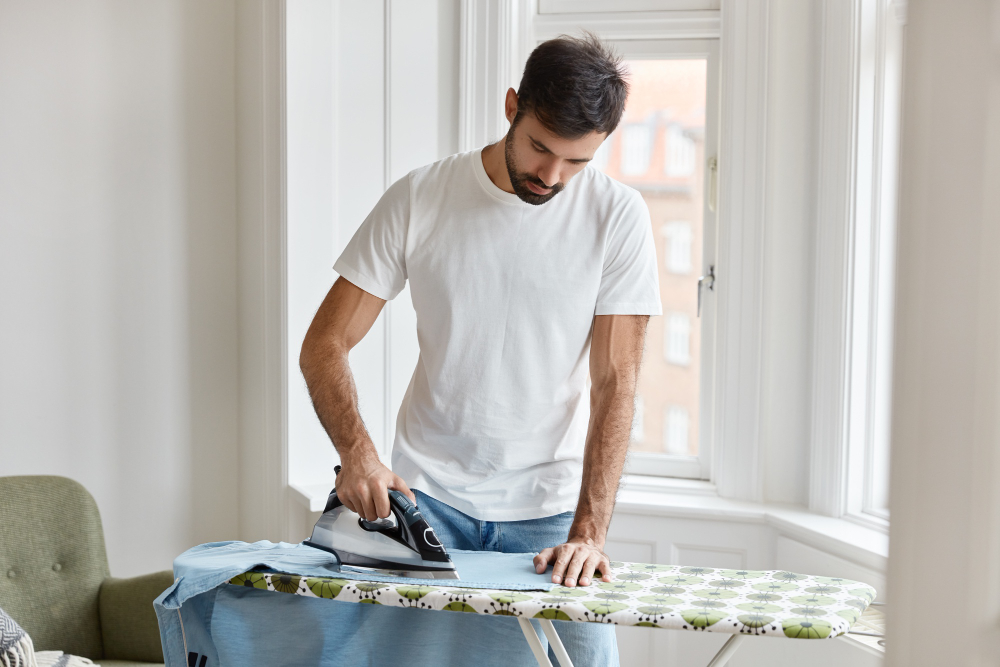
Boomers were raised in an era where crisp, pressed clothes were a sign of effort and professionalism. They had ironing boards in their laundry rooms and knew how to get the perfect crease in a pair of dress pants. Millennials, however, see ironing as a tedious chore that has largely been replaced by wrinkle-free fabrics, steamers, and dryers with built-in de-wrinkle settings, says Helen Andriatsitohaina writing for the Spruce.
If a shirt needs ironing, most Millennials will either toss it in the dryer for a quick refresh, spritz it with wrinkle-release spray, or just embrace the slightly rumpled look. Unless it’s for a rare formal occasion, an iron is more likely to collect dust in a closet than see regular use.
2. Writing checks feels like an unnecessary hassle.

Boomers were all about checkbooks—balancing them, writing them, and using them to pay for everything from groceries to rent. Millennials, on the other hand, rarely, if ever, touch a checkbook. With digital banking, automatic bill pay, and mobile payment apps, writing a check feels as outdated as using a fax machine, writes Vince Graziani, CEO of IDEX Biometrics.
If a company or landlord insists on a check, many Millennials will roll their eyes and find a workaround, like setting up online transfers or using peer-to-peer payment apps. It’s not that they can’t write a check—they just see it as an outdated inconvenience.
3. Using a physical map seems absurd with GPS on every phone.

Boomers could unfold a massive paper map, plot a course, and navigate cross-country without missing a turn. Millennials, however, have no patience for that. With Google Maps and GPS apps guiding every step of the way, the idea of fumbling with a paper map feels completely unnecessary, reports Alice Hughes for the Independent.
While Boomers argue that knowing how to read a map is a valuable skill in case technology fails, Millennials would rather take their chances. If the GPS dies, they’ll find Wi-Fi, ask for directions, or just wing it. Paper maps are nostalgic, but for most Millennials, they belong in glove compartments collecting dust—not being actively used.
4. Sewing and mending clothes isn’t worth the effort.
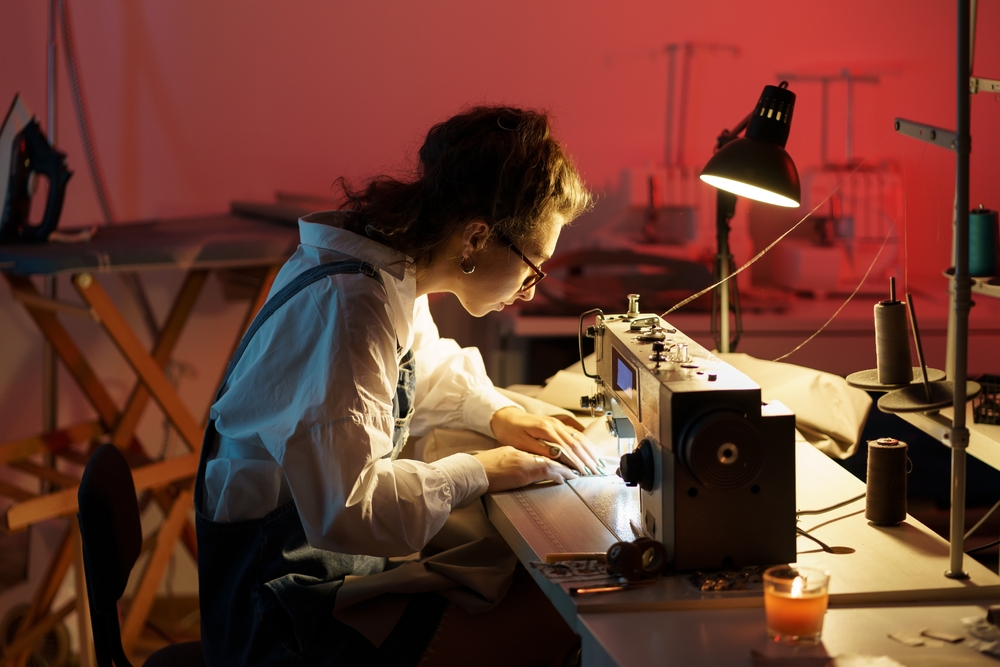
Boomers learned how to sew in school or at home, and for many, it was a standard life skill. They fixed ripped seams, sewed on missing buttons, and even made their own clothes. Millennials, however, see it as a time-consuming skill that’s no longer essential, according to writers at Goldstar Tool. If a shirt gets a hole, they’re more likely to replace it or take it to a tailor than pull out a needle and thread.
Fast fashion and affordable clothing have made sewing feel like more effort than it’s worth. If it’s a favorite piece of clothing, they might attempt a quick fix with fabric glue or a patch—but full-on sewing? That’s a hard pass for most.
5. Cooking everything from scratch feels unnecessary.

Boomers grew up in an era where home-cooked meals were the standard. They knew how to bake bread, make pasta sauce from scratch, and whip up meals without relying on pre-made ingredients. Millennials, however, live in a world where convenience reigns. They rely on meal kits, grocery delivery, and pre-chopped veggies to cut down on cooking time.
It’s not that Millennials don’t cook at all—many enjoy it when they have time. But spending hours making everything from scratch when there are easy, delicious shortcuts available? That’s not something they feel guilty about skipping.
6. Using fine china and silverware feels outdated.
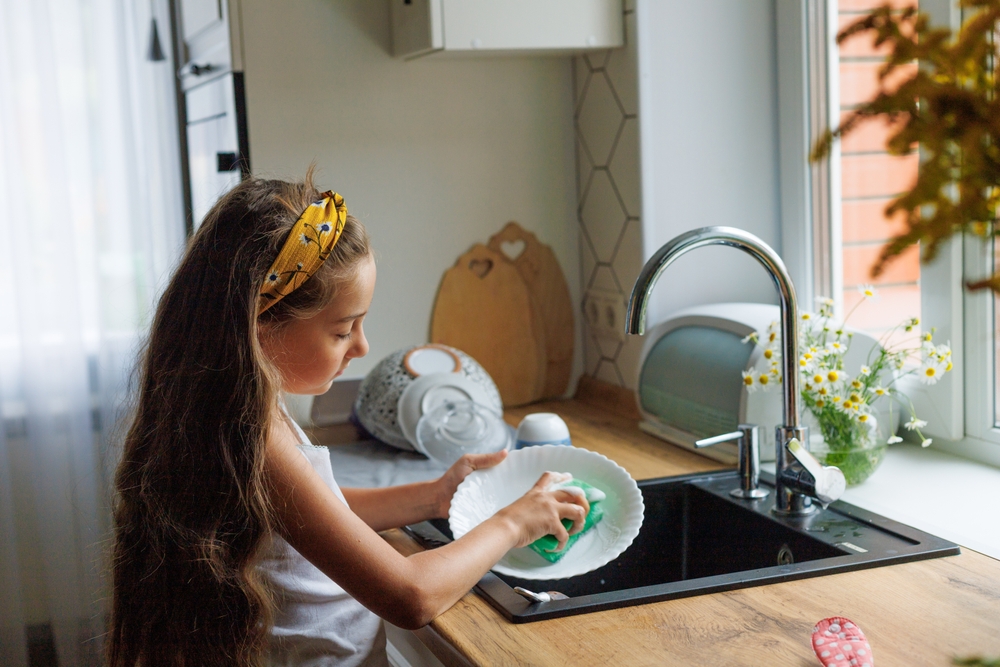
Boomers had “the good dishes” reserved for special occasions—fancy china sets that only saw the light of day on holidays. Millennials, however, don’t see the point in owning delicate, high-maintenance dishware that can’t go in the dishwasher.
Most prefer minimalist, everyday plates that are durable and easy to clean. If there’s a fancy dinner, they’d rather eat off stylish but functional dishware than worry about chipping an heirloom plate. Formal dining traditions just don’t fit into their more casual, practical lifestyles.
7. Cleaning with harsh chemicals has been replaced by natural alternatives.

Boomers stocked their cabinets with bleach, ammonia, and other heavy-duty cleaning products. Millennials, however, lean toward eco-friendly cleaners that are gentler on the environment and their health. Vinegar, baking soda, and plant-based cleaners have taken over, while harsh chemical smells are seen as a thing of the past.
Millennials want products that clean effectively without toxic fumes. They’ll skip the old-school bleach and opt for cleaning wipes, essential oil sprays, or all-in-one products that make the job easier and safer.
8. Mowing the lawn is often outsourced or avoided entirely.

Boomers took pride in maintaining a perfect lawn, spending weekends mowing, edging, and watering to keep their grass pristine. Millennials, however, are more likely to live in apartments, townhomes, or opt for low-maintenance landscaping that doesn’t require weekly upkeep.
If they do have a yard, many prefer hiring a lawn service or using native plants that require minimal care. Spending hours sweating behind a mower isn’t their idea of a productive weekend.
9. Hanging clothes on a clothesline feels outdated.
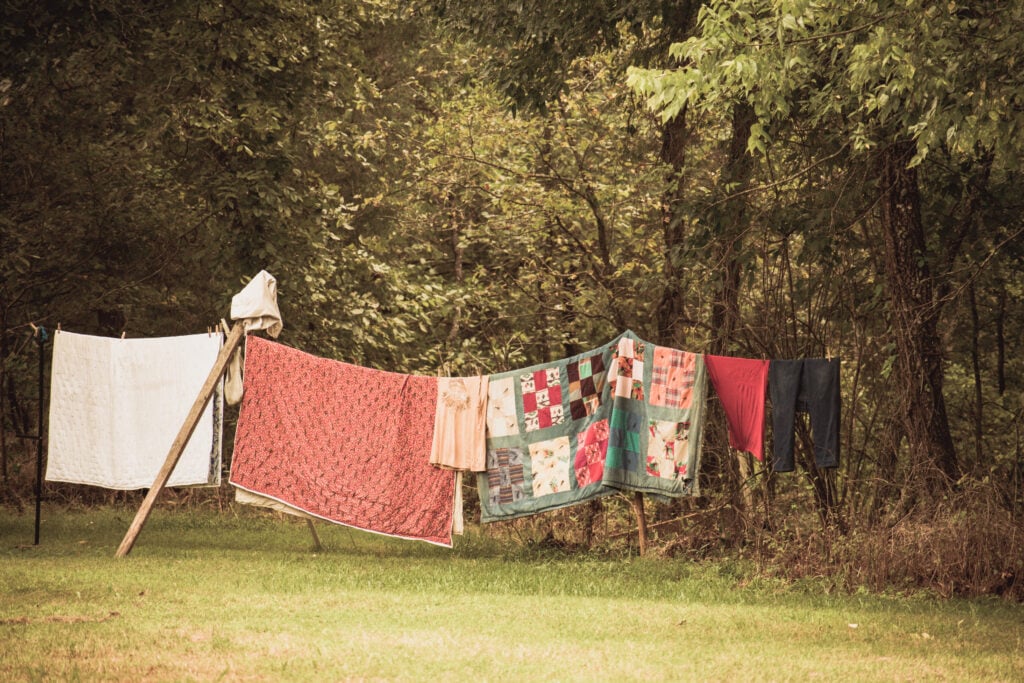
Boomers remember the days when clothes were dried on a line in the backyard, soaking in the fresh air. While some Millennials appreciate the nostalgia, most don’t see the practicality. Modern dryers are energy-efficient and fast, making clotheslines feel unnecessary.
Air drying might happen for delicate items, but stringing up an entire load of laundry outside? That’s a tradition that’s fading fast.
10. Canning and preserving food seems like too much work.

Boomers knew how to can fruits and vegetables, making jams, pickles, and sauces to last through the winter. Millennials, however, see it as a labor-intensive task that’s no longer essential when grocery stores are stocked year-round.
While some enjoy canning as a hobby, most prefer buying fresh or frozen produce when needed. The days of spending hours sterilizing jars and sealing lids just don’t fit modern lifestyles.
11. Using an actual alarm clock instead of a phone feels pointless.
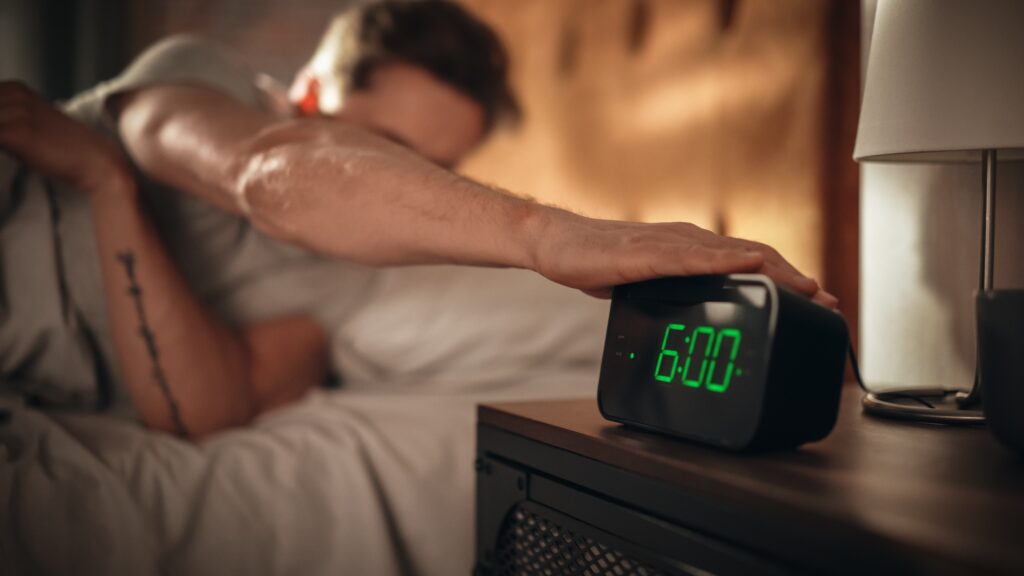
Boomers relied on clunky alarm clocks, while Millennials use their phones for everything—including waking up. The thought of buying a separate device just for an alarm seems unnecessary when smartphones do the job just fine.
Even if Boomers argue that a real alarm clock keeps the bedroom free from distractions, Millennials prefer the convenience of their all-in-one devices.
12. Fixing household appliances is a job for professionals.
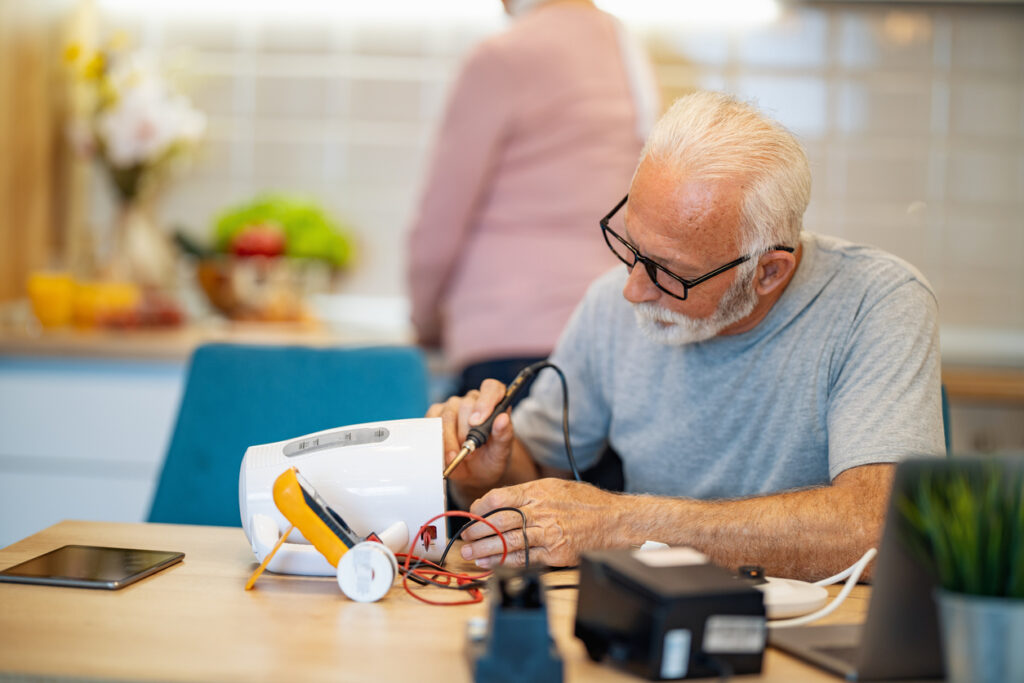
Boomers had a DIY mentality when it came to fixing washing machines, dishwashers, and leaky faucets. Millennials, however, would rather call a professional than risk making the problem worse.
With complex modern appliances, fixing things isn’t as straightforward as it used to be. A quick YouTube search might help for minor issues, but for anything major, Millennials are happy to outsource.
13. Storing physical paperwork feels unnecessary.

Boomers kept filing cabinets full of receipts, bills, and important documents. Millennials, however, store everything digitally. Scanning apps, cloud storage, and paperless billing have made physical files seem outdated.
While Boomers may argue that digital records can get lost, Millennials trust encrypted backups and cloud security more than they trust a bulky file cabinet.
Millennials aren’t rejecting skills out of laziness—they’re just adapting to a world where efficiency matters more than tradition.
